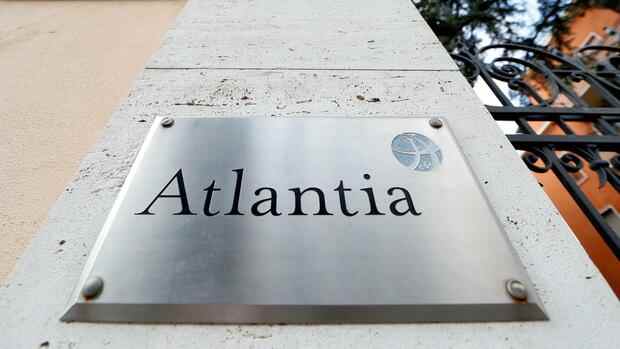Yunex Traffic fits into its own new strategy, according to a message from the Italian holding company.
(Photo: Reuters)
Munich Siemens is about to sell its traffic technology subsidiary Yunex Traffic. The Italian infrastructure holding company Atlantia, which is controlled by the Benetton family, said it made a binding bid on Wednesday.
According to information from financial circles in the Handelsblatt, Atlantia has a good chance of winning, Siemens should bring in almost a billion euros in the sale.
Yunex fits into the new strategy of Atlantia, it said in the announcement of the holding. The spin-off from Siemens Mobility offers solutions for intelligent road traffic control, from toll systems to traffic light control. Siemens no longer counted the company as part of the core business of its rail technology division.
According to Siemens, Yunex’s sales were recently more than 600 million euros, and incoming orders have grown by an average of eight percent in recent years. The company is now operating profitably.
Top jobs of the day
Find the best jobs now and
be notified by email.
Siemens did not want to comment on the information. In industry circles it was said that the sale was imminent, but the final decision had not yet been made.
Atlantia wins bidding contest
Buyer interest has been great in the past few months. Siemens had selected five bidders who should submit a binding offer by just before Christmas. In addition to Atlantia, the interested parties were the financial investors Bridgestone and KKR, the Czech industrial holding PPF and the competitor Cubic, which belongs to the investment companies Veritas Capital and Evergreen Coast Capital.
Most recently, according to information from the Handelsblatt, in addition to Atlantia, Bridgestone in particular was interested in this group, but the financial investor is said to have left the company in the meantime.
Atlantia Holding made international headlines after the collapse of a motorway bridge in Genoa. It was part of the road network of the former Atlantia subsidiary Autostrade per l’Italia (ASPI). After years of conflict with the government, Atlantia sold the toll road operator to a consortium of investors in mid-2021 for a good nine billion euros.
Thereafter, Atlantia had declared that in future it would no longer only participate in motorways, airports and toll systems, but would also enter into related business areas such as intelligent traffic solutions.
Siemens ITS became Yunex – the sale was in sight
That Yunex Traffic could eventually be sold became clear when Siemens announced its separation from the Siemens rail technology division in November 2020. The division wants to “open up new opportunities” in the market, which is predominantly characterized by medium-sized competitors, said today’s CEO Roland Busch at the time.
In February 2021, Busch finally announced that the former Siemens Intelligent Traffic Systems would be spun off into an independent company on July 1 and renamed Yunex Traffic. Yunex should act with “entrepreneurial freedom”, pursue its own growth strategy and actively contribute to the consolidation of the market. Since then, the sale of the division was foreseeable.
The core business of Siemens Mobility, to which Yunex previously belonged, is the construction of trains and signaling technology. Ex-Siemens boss Joe Kaeser had heavily rebuilt the portfolio and, among other things, split off the low-margin energy technology and listed it on the stock exchange as Siemens Energy. At that time there was also repeated speculation about a separation from the railway technology division – especially after the failed merger with Alstom.
Siemens Mobility remains part of the core business
After his start, Busch emphasized that he did not want to continue to split up the company. Railway technology in particular is a good example of how Siemens can combine hardware and software. Under the new Siemens boss Busch, the railway technology division will remain core business in the long term, according to company circles.
In the past fiscal year 2020/21, Mobility increased sales by three percent to 9.2 billion euros. With an operating margin of 9.3 percent, Mobility has not yet met the new medium-term goals of ten to 13 percent. However, the rail sector has now been more severely affected by the effects of the corona pandemic. In the meantime the demand is increasing again. In the fourth quarter of the 2020/21 financial year, Mobility increased incoming orders by a third to 2.8 billion euros.
More: When corporate spin-offs are worthwhile for shareholders
